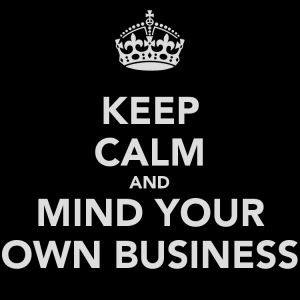I recently came across some surprising advice to Christians from Paul. “Make it your ambition to lead a quiet life; you should mind your own business and work with your hands, just as we told you. (1 Thessalonians 4:11).
A quiet life? Mind your own business? Is this the same Paul speaking? The Paul whose preaching in Thessalonica had incited a riot among some jealous–and nervous–Jews? (See Acts 17:6-7). But in his advice to this young church, he  understood that a church in a hostile environment is in a different situation than a missionary just passing through – a church is located in a context: it is committed to that setting and is in it for the long haul; thus, in attempting to witness to the gospel contextually it should take every possible measure not to hurt its witness for the gospel.
understood that a church in a hostile environment is in a different situation than a missionary just passing through – a church is located in a context: it is committed to that setting and is in it for the long haul; thus, in attempting to witness to the gospel contextually it should take every possible measure not to hurt its witness for the gospel.
I think there is an important message here. What does it mean to be a Christian in an increasingly pluralist society today. What does it mean to be the church in the midst of a changing world, while we anticipate the ultimate return of Jesus to set all things right?
We don’t normally think about being quiet, or living a quiet life, and minding your own business, as requiring ambition. The two don’t seem to go together. But think  about how easy it can be to want to be the center of attention, or to get involved in other people’s business (be a busybody), or to stir up conflict. So, maybe it sounds counterintuitive, but it’s very true: it can take work and intentionality to be quiet when you could gossip, or to withhold action when you could easily do something. Recall the proverb: fools rush in where angels fear to tread. This is all about wisdom in how we act and respond to outsiders. Restraint, being quiet, minding your own business, is harder than it seems.
about how easy it can be to want to be the center of attention, or to get involved in other people’s business (be a busybody), or to stir up conflict. So, maybe it sounds counterintuitive, but it’s very true: it can take work and intentionality to be quiet when you could gossip, or to withhold action when you could easily do something. Recall the proverb: fools rush in where angels fear to tread. This is all about wisdom in how we act and respond to outsiders. Restraint, being quiet, minding your own business, is harder than it seems.
There’s a lesson here in how we engage in the public square. Paul was constantly aware that to be a Christian means, first and foremost, to be a member of the kingdom of God—not the kingdom of Cesear, or—had he lived today—of America. As we come closer to July 4, this is, in my view, an important lesson to remember. We can be patriotic and thankful for the freedoms we have in this country without being nationalistic and without acting as if the kingdom of God and the American nation are somehow synonymous. They aren’t. This may be part of what it means to mind your own business. For Paul, living a quiet life, minding our own business, and working with our hands (contributing to the greater good of the society and culture in which we live) is a way to show respect for outsiders (4:12).
We can err easily on the side of ignoring society and its ills and doing nothing, and we can err on the side of expecting society to conform to our expectations of morality and attempting to transform society in accordance with a particular community’s understanding. We can also, more individualistically, err on the side of ignoring a person’s sin, or trouble, or challenging situation—just letting it go by without even a word of care or warning—or we can err on the side of being moralistic busybodies, trying to play the role of the Holy Spirit in the lives of others—a dangerous proposition because, if you’re like me, you need every bit of the Holy Spirit working on your own problems.
Somewhere in the middle is a sweet spot, the right way to go. Frankly, I think it’s a bit of a relief to read Paul say this. Living a quiet life and minding my own business: That sounds like something I can do. But then again, it might be harder than it appears.











